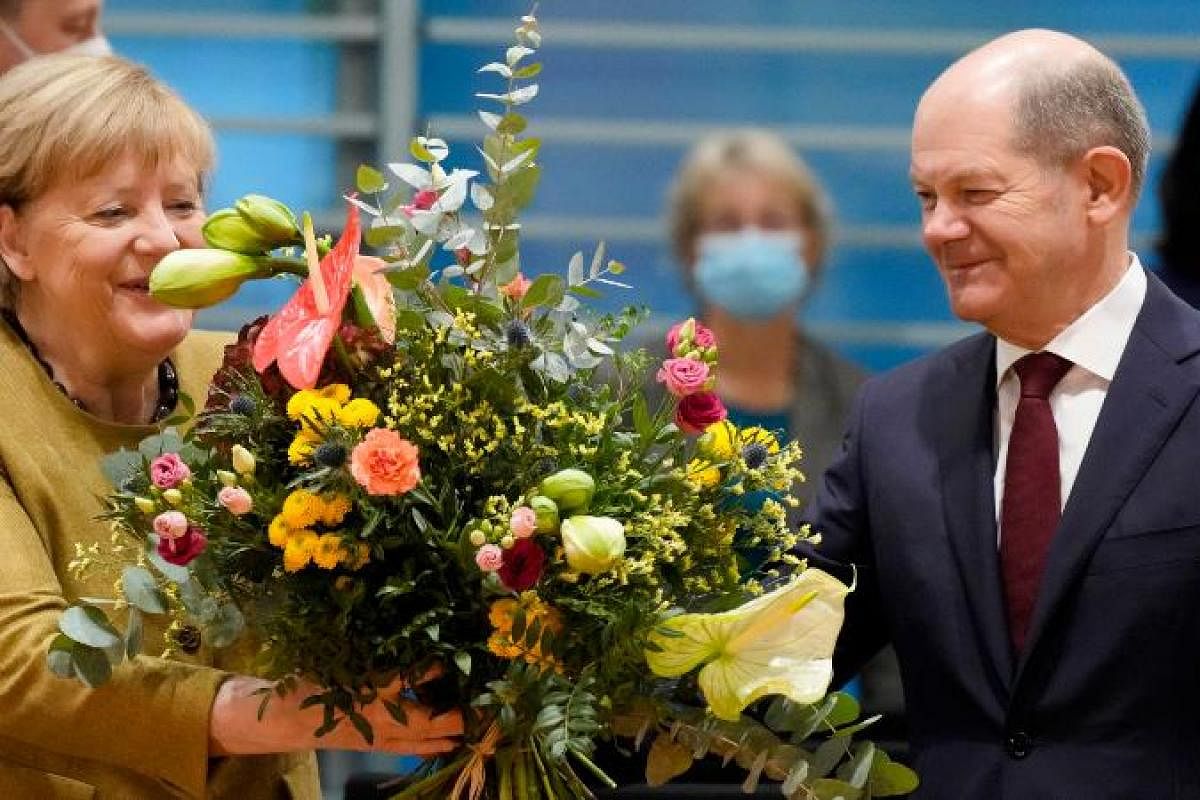Afresh experiment in coalition politics is on the anvil in Germany, one that will bring the curtains down on Angela Merkel’s 16-year-stint at the helm of Europe’s largest economy. Going by the terms of the pact concluded in Berlin on Wednesday, the Social Democrat, Olaf Scholz, will be the next Chancellor and Ms Merkel will not seek a new or extended term.
The coalition’s terms of engagement aim to modernise the German economy and accelerate what they call the “green transition”. The alliance is the first at the federal level between the ideologically disparate Greens, the libertarian Free Democrats (FDP) and Scholz’s centre-left SPD. The three parties together enjoy a majority in the Lower House of Parliament and hope the government will be sworn in early next month after they ratify the 177-page coalition pact.
Advertisement
Named after the parties’ respective colours, the traffic light alliance will usher in a new era of relations with Europe, and plans to speed up digitalisation of the economy while maintaining fiscal discipline. At a media briefing, flanked by the FDP and Greens leaders, Scholz recalled that when the first traffic light was erected at the city’s Potsdamer Platz in 1924, many questioned whether it could work.
“Today, the traffic light is indispensable when it comes to regulating things clearly and providing the right orientation and ensuring that everyone moves forward safely and smoothly,” he said. “My ambition as chancellor is that this traffic light alliance will play a similarly groundbreaking role for Germany.” Ms Merkel leaves big shoes to fill. She has navigated Germany and Europe through multiple crises and has been a champion of liberal democracy in the face of rising authoritarianism in different parts of the world.
Her detractors contend that she has managed, rather than solved, problems and leaves her successor tough decisions on many fronts. The incoming government faces immediate challenges, with Europe grappling with the fallout from Brexit, a crisis on the European Union’s border with Belarus and surging Covid-19 cases.
Scholz (63), an experienced politician who was finance minister in the outgoing “grand coalition” of the SPD and conservatives, said that fighting the pandemic would be his top priority. That certainly will be a forbidding immediate challenge with daily cases hovering around 75,000. But his coalition also has ambitious medium- and long-term plans, including a faster expansion of renewables, an accelerated exit from polluting coal and a hike in the minimum wage, according to its pact.









